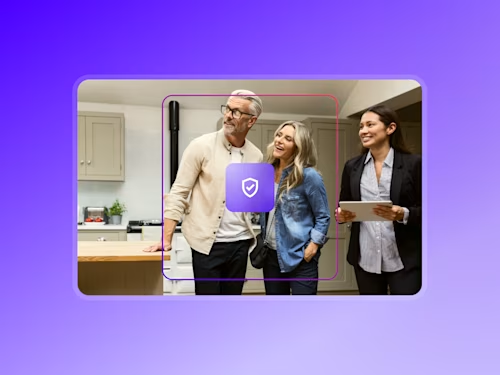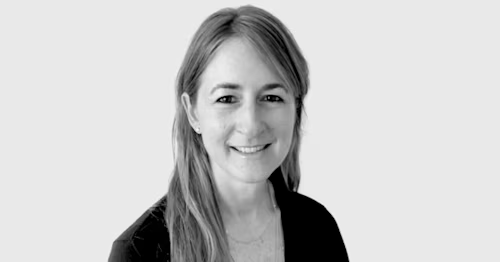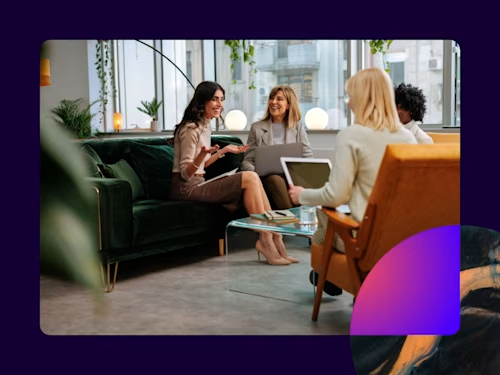
What Does it Take to be a Modern CFO? A Q&A with Docusign CFO Cynthia Gaylor
We sat down with Cynthia Gaylor, Chief Financial Officer, to learn about what inspires her and what she thinks about her role as a modern CFO.


We sat down with Cynthia Gaylor, Chief Financial Officer, to learn about what inspires her and what she thinks about her role as a modern CFO.
You were first on the Docusign Board of Directors and then accepted the CFO role. What was your first challenge as CFO at Docusign?
I was on the Docusign Board of Directors for a couple of years and was the chair of the Audit committee and the mergers & acquisition committee, so I had a good idea of what Docusign was about and what I was getting into. Docusign was experiencing tremendous growth at scale and, given the pandemic, I started working in my new CFO role completely remotely. I've worked with lots of remote teams around the globe, but stepping into a new role as a completely remote employee was definitely a challenge. However, it also gave me a kinship with all of the new team mates that we hired during that time that also had never met their colleagues or been to a Docusign office.
What unique perspective do you think you bring to Docusign?
I came to Docusign and the board with a pretty unique perspective. The executive team was looking to change the composition of the board, apart from our original investors. As a former investment banker for almost 20 years, I was a trusted advisor and partner to many CEOs and boards across the software and internet sectors experiencing high growth and scaling. I brought this experience and this high-growth pattern recognition at scale to the Docusign board and our management team.
More women are becoming corporate CFOs, but there are still not many. How did your experience in investment banking and corporate development help you become a CFO?
I started on the trading floor in New York City and moved to working as an investment banker at different firms where there were very few women in investment banking or finance roles. However, I chose to pursue technology investment banking because I thought it would be a more open culture with different perspectives and diversity. And, there was certainly more of an entrepreneurial spirit in the tech industry at the time than there was in an industry like, say, oil and gas. I am a big believer in meritocracy and so I was selective about choosing roles and industries where I thought there’d be less bias -- conscious and unconscious.
I then looked at the path of going from being a trusted advisor to the board and CEO-level to being an operator. Those are two very different things. I’ve seen a lot of different tech companies go through different life cycles and growth stages – helping them think through some of the biggest strategic challenges. I’ve worked with private companies aiming to grow from 50 million of revenue to 500 million of revenue – thinking through when to go public or if they should sell or consolidate with another company – to some of the biggest software and technology companies trying to figure out their international expansion strategy or the next leg of the growth. This experience – partnering with management teams, thinking through strategic opportunities and challenges, taking strategy and operationalizing those ideas – led me to the CFO role, first at Pivotal Software and then here at Docusign.
When did you make the leap to the operating side?
I first got the operating bug when I was at Morgan Stanley where I had been working with many branded consumer internet and mobile companies. I was also running our corporate finance practice and had just taken Facebook public and we were about to take Twitter public. Somebody who I worked with during my Hambrecht & Quist days suggested I put my name in the hat for the Twitter corporate development role. I was nine months pregnant at the time with my second child when I had the first meeting, met the CEO a few weeks after giving birth and eventually joined the company. At Twitter, we doubled the business by growing organically, growing into new markets and by acquiring over a dozen companies in a very short period of time. Then, operationally, we had to ensure these companies and businesses were successful within the larger organization to help drive growth and build out the portfolio.
How does knowing the ins and outs of Docusign’s business model help you advise leadership on the company’s strategic imperatives?
First and foremost, it's really important for me and my team to understand the business. We’re a fact-based culture. We have a single point of truth to manage the key drivers of the business and growth potential. Looking at data is not without its challenges. We need to deeply understand the metrics that drive the business – the big levers and the little dials. We help our cross-functional teams prioritize what's most important, what's less important, and sometimes we have to make tough decisions.
The COVID-19 pandemic forced abrupt changes on businesses, forcing many to transition to virtual agreements. What do you see as the growth opportunity for Docusign in the Anywhere Economy?
Agreements are everywhere and in every facet of life and business. In that sense, Docusign is in a great position to help organizations make that transition. We're a global platform, and we have a lot of business tailwinds. We have a tremendous opportunity to be anywhere that business is done, and our job is to go after that opportunity. The Anywhere Economy is an opportunity for Docusign to reimagine – not just what we are for our customers, but what we are for ourselves. It's a really big, challenging and exciting opportunity for us to reimagine how and where we get things done. Docusign, like many companies, did a tremendous job of quickly pivoting to enable business continuity for ourselves and millions of new customers and signers. We were able to meet this urgent need – for ourselves and in order to support our customers during this shift – by keeping our focus and an agile mindset. We are really proud of the team.
Your team specifically is actively involved in carbon neutral planning for Docusign. What does this involve?
When it comes to carbon neutral planning, we’re changing behavior to really move the needle. We have a lot of efforts underway, and it's a super important mission to me as a professional but also as a human. Our family spends a lot of time outdoors, in nature. Docusign’s commitment to protecting the world’s forests and the environment is one of the reasons I was attracted to working with Docusign. This is an area where Docusign can differentiate itself and help its customers differentiate in a meaningful way – it’s certainly an area where we can lead. We have a cross-functional team focused on figuring out ways to be a disruptor, not just to ourselves, but also to help our customers. When you think about all the companies around the globe that are trying to do the right thing, we can help them get there.
When or where do you get your best ideas?
I get my best ideas from listening; I learn from listening closely. I keep a growth mindset to learn, grow and influence outcomes. I like to think about how we can think differently, how we move the needle in the direction of growth, while prioritizing what is most important.
Do you have a guiding principle that influences, supports your creativity or leadership style?
I’m a believer in walking the walk. I never ask folks to do things that I'm not willing to do myself, whether it’s helping drive the business with customers, sourcing candidates or more tactical things like drafting presentations or modeling. It's really important from a team perspective and leading from the front. I also believe in learning and evolving with change. Independent of how much experience you have, things often change faster than best practices, so it’s important to always learn from what you’re doing and evolve your mindset.
Why should somebody come work on your team?
Because we’re amazing! Joking aside, the folks we attract want to be builders. They want to build something versus coming into a company that is scaled and everything is already figured out. There are very few companies that are in the sweet spot of where Docusign is right now. In our operational functions, we're still very entrepreneurial. There are opportunities to work on a team where we're still molding and crafting what we're going to be and how we’re going to do things. Everything is open to iteration. We're also growing, by any metric, at a tremendous rate. It’s not just our financial metrics that are increasing, but the number of our employees and how we’re thinking about expanding around the globe. It’s a great time to join the company.
What do you look for when recruiting talent to your team?
First and foremost, I look for good judgment -- at all levels. In the functions that I'm responsible for, good judgment is imperative, and it’s hard to teach. People may learn from their mistakes and improve, but if they don’t have good judgment, it's really hard to be successful.
How do you mentor or advocate for your team?
I like to give people the opportunity to meet their career goals, and that usually involves stretch assignments. I’ve found this to be effective in retaining people, and also helping them grow their careers. This doesn't mean we don't need to augment the team with people with other skill sets over time. We look for those folks who really want to grow in their function or expertise and we help them find those stretch assignments that keep them engaged. This keeps people learning and helps them see the impact they are having at Docusign.
Besides work, what other endeavors do you find gratifying?
I have three young children. Depending on the day, we call our house “the zoo” or “the circus”. I spend most of my time outside of work with my family. On the weekends, you’ll find us outdoors, often hiking, biking, surfing or skiing. We’ve recently taken up pickleball. I'm also a Bikram Yoga enthusiast. One of my pet projects is making specialty birthday cakes for each of my kids. It's a fun family challenge. They can “order” whatever character they want, and then I’m challenged to recreate it as a cake. This year we had a stormtrooper and Harry Potter, but Cookie Monster so far has been my best piece of work.
Interested in doing the work of your life at Docusign? Check out our openings. We’d love to talk more.
Related posts
Docusign IAM is the agreement platform your business needs


